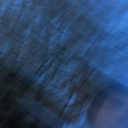tutorials for app dev using Xcode & Pd out of date
If you are set on using just the native iOS UI tools this solution probably won't work, But I maintain a cordova plugin for libpd, you can find it here: https://github.com/robertesler/cordova-pd. There are instructions on how to use it on the README page. With cordova you can use HTML5/Javascript for your UI and interface with a Pd patch. Cordova will allow you to create an iOS platform which generates an Xcode project.
Otherwise, the examples on the pd-for-ios still 'should' work. I haven't tested all of them for at least a year, but that is also worth a shot if you really need to use native iOS UI tools.
Good luck!
Simple Glitch Effect
Hey everyone !
I'm proud to share to you a really simple abstraction i made today named "glitch~.pd", wich I created to reproduce typical sounds of breakcore/IDM artists like Autechre, Squarepusher, Venetian Snares, etc..
The idea of this abstraction came from youtube channel "Sound Simulator", who did this excellent videos about how to make glitches with PureData
It's only a begining, do not hesitate giving your feedback / advice about it !
https://github.com/izeKake/glitch-/tree/main
Screenshot of glitch_help.pd :
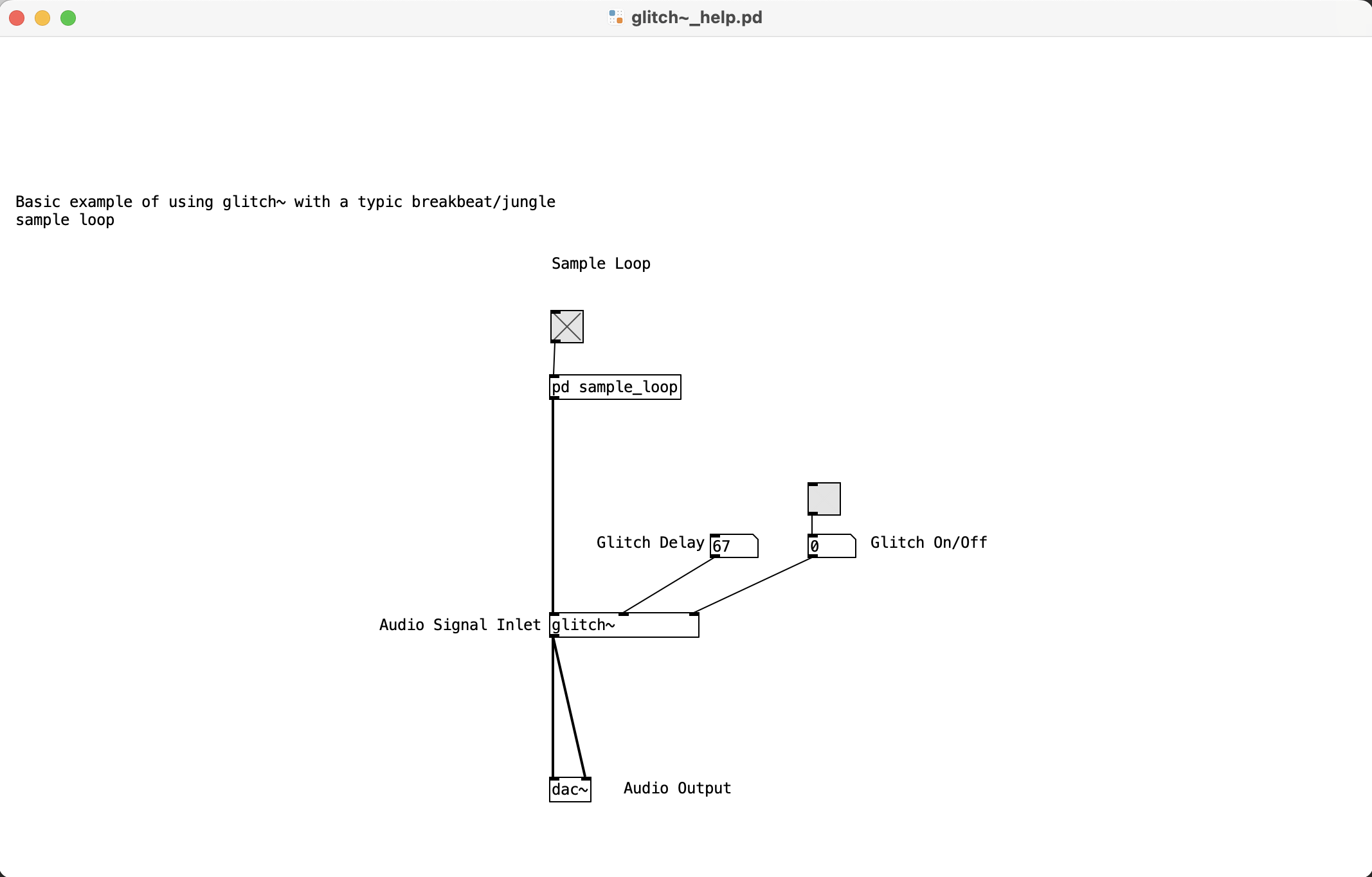
Open Call: Crafting Perfection with the Fibonacci Sequence
Is Perfection Important?
Exploring the Sound through the Fibonacci Sequence
Application deadline: Nov. 18, 2023, 12am
Submission Email: lyd15150099208@gmail.com
Website:https://www.yadong.uk/process-2-1/event-one-jn7aa
Music and Data Convergence: A Call for Creators
The intersection of music and data offers a realm of boundless possibilities. Both fields rely on precise symbols to convey information, creating a parallel between musical notes and data records. Just as performers and listeners immerse themselves in the musical experience, data enthusiasts observe and record the ever-evolving world of information. In this context, stages and instruments become the equivalent of facts and observations, bridging the gap between music and data.
While music and data aren't identical systems, music can be seen as a unique way to represent data. It's not just about recording and playing notes; it's about reimagining music from a data perspective. Our goal is to unlock infinite possibilities, sparking creativity at the intersection of data and music.
Open Call: Crafting Perfection with the Fibonacci Sequence
The Fibonacci sequence, a mesmerizing pattern found in nature and the arts, offers an exciting creative opportunity. Starting with 0 and 1, each number in the sequence is the sum of the two preceding numbers (1+1=2, 1+2=3, 2+3=5, and so on). This sequence often leads to the golden ratio (approximately 1.618), a cornerstone in creating aesthetically pleasing designs in art and architecture.
I invite artists, musicians, and visionaries of all levels to explore the potential of this sequence in crafting perfect sound art. Use the data series that represents perfection to create works of sonic wonder.
If this piques your interest, please share your artwork or ideas with us via email. We'd love to hear about your creative process and vision.
Selected works have the chance to be featured in our upcoming online exhibition.
Join us in the exploration of data and sound, as we redefine the boundaries of creativity at the nexus of music and information.
PD audio project on RPi: playback keeps glitching/freezing
This sound clip demonstrates the glitch, just after 0:03, for about one second
PD audio project on RPi: playback keeps glitching/freezing
Hello, I feel like I've been blowing the forum up recently, sorry if I'm coming across as needy 
This seems like it would be discussed a lot online but I cannot find relevant advice on it despite some intensive searching.
I'm running a Pure Data audio patch on a RPi, with an external USB soundcard. The patch samples from an external microphone and plays back the sounds in a sequence to a beat. When this 'beat sequence' playback happens, it is routed and recorded as another discrete sound file. Recording and playback are triggered by buttons connected via an Arduino Nano and the pduino object.
As I've been working towards my deadline to finish the device and ship it, the patch has become more prone to a specific audio glitch where it freezes mid sound, kind of like a skipping CD. I've experienced this before on other projects but never this frequently! I would assume I am demanding more than I should of the RPi, but I don't feel like it's a particularly processing-heavy project.
Are there ways I can avoid this glitching/skipping/freezing, either by making changes within the patch or by somehow optimizing the way my RPi is set up and running? It's only required to run this patch, so I'm wondering if purging a load of unneeded software that came with the OS might help.
Here's the patch in case that is a useful reference (I have a few abstractions I've put in there):
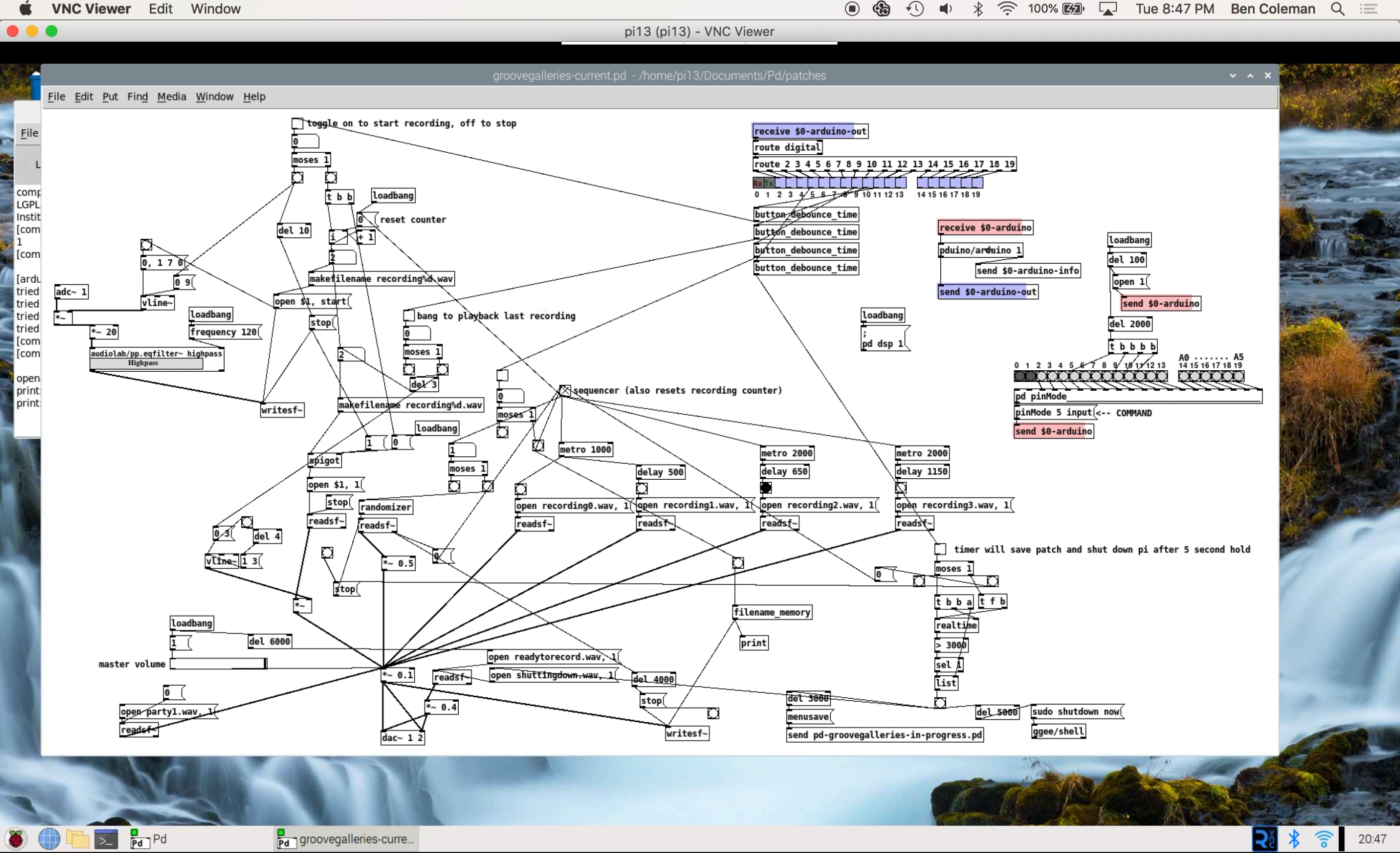
Any advice gratefully received - I'm worried this won't be up to a usable standard if it keeps glitching out during use!
Get the size of a large wav file without loading it
@lacuna said:
The helpfile of soundfiler says:
"If no array name is given, no samples are read but the info is provided anyway."
Not sure if this is actually the case, as I get drop outs occasionally. Does it read the header only?
As Ross Bencina points out in a justifiably famous article, "All sources of audio glitches within your code boil down to doing something that takes longer than the buffer period. ... The main problems I’m concerned with here are with code that runs with unpredictable or un-bounded execution time. That is, you’re unable to predict in advance how long a function or algorithm will take to complete. ... Doing anything that makes your audio code wait for something else in the system would be blocking. This could be acquiring a mutex, ... snip snip..., waiting for data to be read from disk..." (hmmmm).
If [soundfiler] is blocking for filesystem access and it affects the audio thread, then it would explain the glitches. In that case, it might not even need to read a large amount of data -- if the data aren't in the filesystem RAM cache already, spinning the HD to the right speed and pushing the drive head to the right position could take longer than the available time. A SSD might fare better but there are no guarantees. Filesystem access should be treated as time-unbounded and not safe for real-time audio -- even just reading a header.
IOW if my guess is correct about [soundfiler]'s behavior, then it is breaking Bencina's prescriptions for real-time safety = bug. ("Especially if your software is going to be used to perform to a stadium full of fans... you do not want your audio to glitch. Period.")
SC's solution (shunt time-unbounded ops into a queue running in a lower priority thread) is one correct way. There might be others. I just wonder why Pd seems not to be doing that.
hjh
Ofelia - videoPlayer and GLSL Effects
The glitches are gone and the mixer works now as expected 
It is now also an effect chain, effect one goes into effect two and so on.
I think in the glitch version everything was mixed together...
Very nice that this is possible with Ofelia (Pure Data / Lua / Open Frameworks/ GLSL).
I use 4 fbo´s now (one for the video player and one for each effect), just did not know how to use them right.
But somehow I found some of the old glitches quite fascinating.
I would be happy about feedback and suggestions (how to improve the patch)...
One question: Right now the functionality depends on the creation order of the Ofelia objects, because that also seems to be the draw order.
Can I create a constant draw order somehow?
Edit: I think the fbo's are also the solution for a video delay, i just need to find out how to grab for example every 5th frame into 10 fbo buffers. Then I can mix the fbo's with a GLSL file...
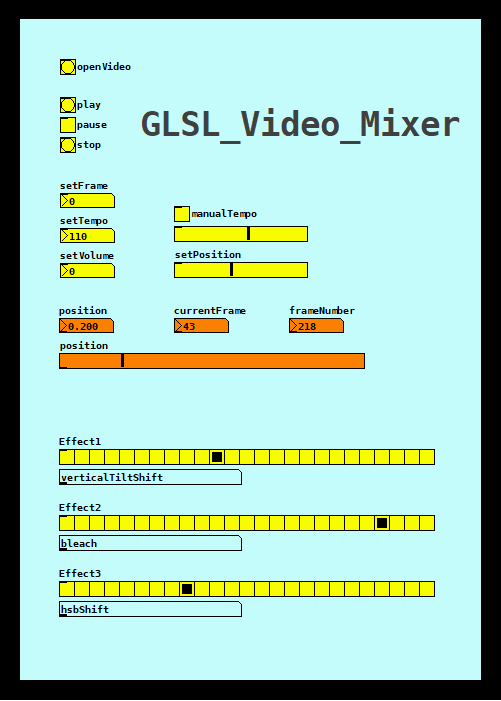
Hello everyone
People, especially kids are always restricted from playing video games. It is said that games will improve the violence, affect our health and eyes. However, you may be surprised with what researchers found out. There are endless health benefits to us, especially kids.
Games are now not just aggressive actions in action games or shooting games. Here we with a more gentle game genre that can help people relieve stress, boost the brain, etc. It is art games. Therefore, if you are wondering if art games can be beneficial or not, it’s time to explore over-expected benefits art games.
1. Promote Creativity
Creativity is one of the most significant ability for us to solve almost every single problems in our life. In art games, we will no longer have to face incredible challenges in real life such as global warming, wars, and mass extinctions. Free your soul in colouring games, room decoration, design or music games.

Art games promote creativity.
Paint your best picture with full of colours or mix the clothes of the princesses in dress-up games in your own way. It’s the way to build up the better creativity. If you want to help your kids boost their creativity, here’s top highly rated online art games for 7 to 12 year olds.
2. Support Fine Motor Skills
Now, it’s time to hold the paintbrush, draw lines and dots, mix different colours in games instead of real life. Alternatively, show your ability in decorating the most stunning room ever. These tasks will be the best way to enhance coordination and dexterity. They are fun and rewarding enough to keep gamers, especially kids coming back again and again. Especially, when kids get hooked on these art activities in games over time. Their motor skills can be improved fast. What a deal!
3. Develop Problem-solving Abilities
Art activities in games with epic graphics may give gamers endless opportunity to make choices, come to conclusion, evaluate results, and second-guessing decisions. People will feel comfortable with common uncertainty, and they will be flexible thinkers, more creative and confident people.
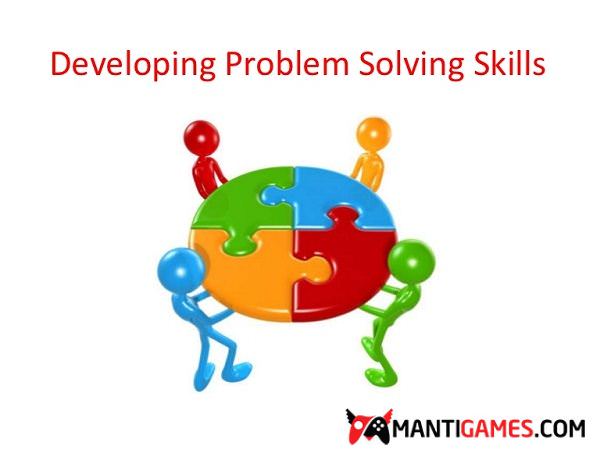
Games develop your problem-solving skills.
Which colour should be applied to the character? Which furniture will this house match and need? To play these games with high scores, good techniques are needed for suitable combinations and good ideas. These games are more suitable for girls than boys. So, enjoy art games for girl here!
4. Improve Vision
This game seems to be a little weird; however, some electronic gadgets such as tab, mobile, computer, etc can negatively damage your eyes with too much exposure. However, scientists show that playing games can help improve your vision. Especially, when entering colouring games, people will identify 4 colour shades well.
5. Reduces Stress
Art games are such a quick stress relief for people in depression. In these gentle games, people will quickly throw their worries away and free their mind from all disturbances once they concentrate on gaming sessions. Moreover, the heart rate will be kept at a normal level for certain games.

Reduce stress with amazing art games!
So, now, after understanding all the advantages of art games, it’s time to enjoy Coolest free online art games to play - check out now.
Stratagies for lowering CPU load on a Raspberry Pi???
@nicnut I am not sure that setting the block-size high is really helping....... the advantage will be slight, but it is important that it is matched to your soundcard. The delay (buffer) will help with glitches, but increase the latency, so should be set just high enough to stop any glitches. The Delay (mSecs) is what you see referred to as buffer.... in samples..... elsewhere..... so for example at 44.1KHz Delay 100mSec is a buffer of 4410 samples rounded down to 2 blocks.....
You might have the Linux -rt (real-time for audio) switch available on the Pi which could help with glitches...... add -rt to Pd preferences "startup flags"
Good practice is to hide arrays in sub-patches, and reduce any screen drawing to an absolute minimum. All the gui stuff is being done between audio ticks, and screen drawing can take too long.
Video cards, Wi-Fi cards, interrupts (especially usb)....... everything else the computer is doing..... can cause glitches by taking too long to complete.
Check out the tuning tips found here........ https://support.native-instruments.com/hc/en-us/search?utf8=✓&query=windows7+tuning+tips for windows and osx but always relevant.
Check out chapter 2.4.2 onwards here as well........ http://puredata.info/docs/manuals/pd/x2.htm
You might need a powered hub for your usb midi. There might not be enough power for it as the Cpu load gets heavy.
David.
GUI horribly slow
Fresh installed Windows 10 (needed it anyway, it's been like a year)
Now the GUI works properly. But oh boy the audio does not.
No audio without ASIO4All. When I select ASIO4All, I hearmy [osc~] but glitchy as hell. Changing the delay or the blocksize changes the perceived frequency of the glitchy sine wave. And PureData crashes, I can't close the window. The glitchy sine wave persists after having force quit Pd.
I don't use asio4all with other softwares. Here's a screenshot of the control panel of asio4all
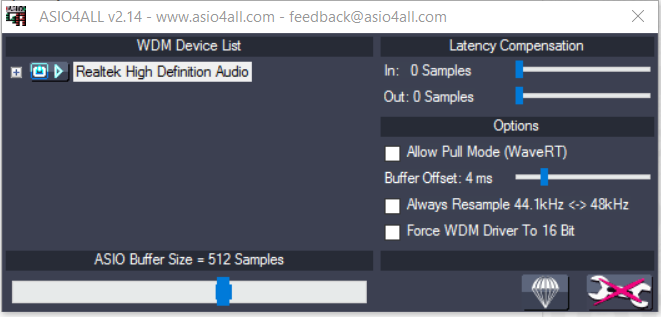
Even if the problem is not yet solved I really appreciate your help @whale-av, thank you for your time !

